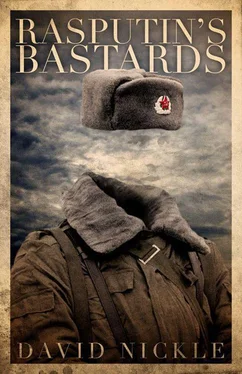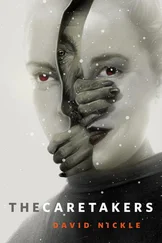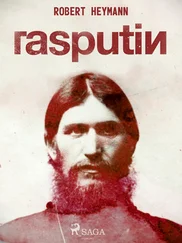The only trouble with that was that while Alexei had many, many memories from his adulthood, he couldn’t recall even considering taking drugs here at school. They weren’t, as far as he could remember, even very widely available here. A couple of boys had been caught once smoking marijuana, and there was a lot of contraband vodka that made its way through the dormitories. But acid? Alexei couldn’t recall it — and he couldn’t bring himself to believe that one or two doses of the stuff would so completely erase his memory of even considering taking it in the first place.
So for the time being, he decided he would maintain his initial premise: that he was thirty-five years old and not twelve, and that his experience here was an elaborate brainwashing metaphorical prison, whose code he would have to crack if he were to ever learn the truth about himself.
They kept Alexei in the infirmary overnight, and he spent most of it awake, thinking it through. By morning, he had concluded that his brute-strength approach to the metaphor had been his undoing. Of course, if he flings himself against a door, kicks a locker, bites an ankle, the metaphor will not falter: the simple fact of those actions imply acceptance of the metaphor’s rules — and acceptance conveys strength.
By the time Alexei hobbled back to his dormitory to get ready for the day’s classes, he had begun to assemble his second strategy for destroying the foundations of this particularly well-made metaphor.
This time, Alexei had decided, he would test the metaphor’s philosophical boundaries. There were a few kids in the metaphor’s dormitory when he got there. He singled out little Ivan Tovich — who he recalled as being one of the brighter bulbs in the bunch. Ivan was bundling his books together in preparation for his chemistry class when Alexei tapped him on the shoulder. He started and looked around at Alexei with wide and fearful eyes.
“Are you going to hit me?” He raised his binder and textbook in front of his chest like a shield.
Alexei smiled. “Of course not,” he said. “Why would you think I would hit you?”
Ivan tried to smile back. “Well, there was the drug thing yester—”
Alexei waved his hand. “The drug thing was bullshit. I never did — that is, I don’t do drugs. I was trying something out.”
“Ah.” Ivan nodded. “Did it work?”
Alexei stepped back and indicated his face and ribcage with a hand. “Does it look like it did?”
Ivan frowned now. “What do you want with me, Kilodovich?”
“I want you to tell me something,” said Alexei. “How do you know that you exist?”
“How do I—” Ivan stepped back, looking around the room for allies. “You are on drugs,” he said. “Go… get some rest, Kilodovich.”
“No,” said Alexei. “I’m fine. I’m asking you a serious question. How can you be sure of your own existence?”
“Okay,” said Ivan, “here’s how: I think, therefore I am . René Descartes gave that answer, and it’s good enough for me too.”
Alexei put his finger to his chin and frowned. “Hmm,” he said. “So thinking confirms your existence. That’s all you’ve got?”
“Look, I’ve got to get to class,” said Ivan. “Can we pick this up later?”
“I will accompany you to class,” said Alexei. “We can talk as we walk.”
Ivan gritted his teeth. “All right,” he said.
“So where,” said Alexei as they stepped outside to cross the sports field to the main building, “does that leave the ground underneath our feet? The rocks? Those little trees over there?”
“I don’t follow.”
“I don’t believe that they think,” said Alexei.
“You didn’t ask me about the rocks and trees and the earth,” said Ivan. “I don’t know that I can be sure about the reality of those things. Certainly, Descartes’ test fails them.”
“And yet they exist for you — day after day, you step outside and see the same trees, the same rocks, your feet touch the same earth. How can you explain that?”
Ivan didn’t answer right away. He stopped walking, looked down at the dirt around his feet. It was strewn with fist-sized rocks. He looked at Alexei, then bent down and picked up a rock. Hefted it in his hand, studied it a moment. Looked back at Alexei.
Finally, Ivan swung the rock in an arch over his head. He cracked it on the side of Alexei’s head. Alexei felt his legs buckle, and watched as a dark curtain crossed his vision. The next thing he knew he was on the ground staring up at little Ivan, who still brandished the rock.
“Seems real enough for my purposes,” said Ivan. “Now fuck off, Kilodovich. Next time, I kill you.”
After this second beating, Alexei Kilodovich slipped into a kind of dormancy. He attended classes; ate and shat and pissed and slept and studied and so on. In the background, a part of him remembered who he was: Alexei Kilodovich the adult, trying to unravel the mystery of himself. But each day, that part grew smaller, faded deeper into the weave of this supposed lie.
And yet, even while the greater part of Alexei sleepwalked through his childhood, that smaller part did make progress. The metaphor was good, but not perfect — there were differences between this place and Alexei’s recollections.
For instance: Alexei remembered a broad plaza fenced in by barbed wire to the south of the compound, where sometimes helicopters would land with supplies. Here, the plaza was a gravel lot, where a couple of old trucks and a dark green school bus often parked.
He also remembered a room: tiny but tall, with frosted-glass windows near the ceiling, and nothing but a simple table with two chairs in the middle of it. He remembered doing some kind of test here — not with pencil or paper, but with words and pictures and a single person administering it. There were no such rooms here.
And he distinctly remembered a teacher named Fyodor Kolyokov.
Indeed, whenever he thought of his childhood, the memory nearly always involved Kolyokov — delivering some lesson, some advice… or, more often than not, some very specific instruction.
Yet here? There was no sign of Fyodor Kolyokov. Sometimes Alexei’s fellow students spoke of him, but always with a kind of distance: Kolyokov used to say … or Reminds me of Kolyokov… or Kolyokov will find out… And the few times that Alexei tried to continue the conversation, it seemed as though the subject would always change to something else — or the conversation would simply end and Alexei would find himself standing alone in the yard as his schoolmates wandered off in separate directions.
The tiny, inquisitive spark in Alexei Kilodovich rejoiced at this apparent dissolution of the metaphor, even as his larger part shrugged it off and threw his young body into another game of floor hockey in the gymnasium, or a fitful sleep in the dormitory, or a shit, or a meal, or the delicious intensity of a pubescent jack-off in the privy.
Alexei might have gone on for many years in such a state, through his metaphorical teens and into his metaphorical adulthood, his inquisitive thirty-five-year-old diminished to nothing more than a pinprick and then vanishing — were it not for the appearance of the apparition in the pines, and the things that its mere existence implied.
Alexei was to meet Ilyich Chenko amid the evergreens for a game of cards at the end of class. It was heading towards winter now; the sun was beginning to set and the snow was thick and golden on the ground; it hung from the pine boughs like buttery baker’s dough. The secret card games would have to move indoors soon — if they could continue at all in the closeness of the long winter night. Alexei had arrived a little early in his eagerness to make the game stretch as long as he could.
Читать дальше












